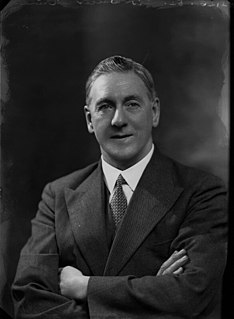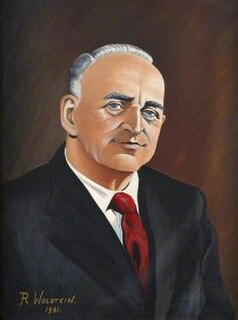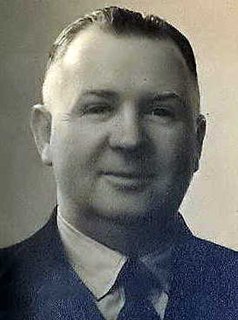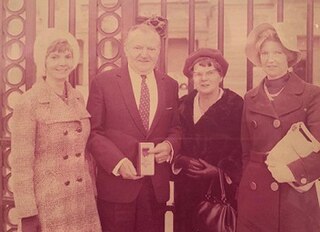Related Research Articles

Walter McLennan Citrine, 1st Baron Citrine, was one of the leading British and international trade unionists of the twentieth century and a notable public figure. Yet, apart from his renowned guide to the conduct of meetings, ABC of Chairmanship, he has been little spoken of in the history of the labour movement. More recently, labour historians have begun to re-assess Citrine's role.

Gordon Brown was an Australian politician who served as a Senator for Queensland from 1932 to 1965, representing the Australian Labor Party (ALP). He was President of the Senate from 1943 to 1951.
Jim Slater was British trade union leader.
Cyril Thomas Howe Plant, Baron Plant, CBE was a British trade unionist.
Joseph O'Hagan, often known as Joe O'Hagan, was a British trade union leader.
Joseph Arthur Hall was a British trade unionist.
William Bailey was a British trade unionist.

David R. Gilmour was a Scottish trade unionist.

Abraham Moffat was a Scottish trade unionist and communist activist. He was elected repeatedly to high office in the trade unions and represented the union on government coal boards. He held major union offices: President of the National Union of Scottish Mine Workers; member of the Executive Committee of the Miners' Federation of Great Britain; Vice-Chairman Scottish Regional Coal Board; and member National Coal Board. He served as president of the union from 1942 to his retirement in 1961, when he was succeeded by his younger brother Alex Moffat, also an activist.
Alexander B. Moffat was a Scottish trade unionist and communist activist who was President of the Scottish Trades Union Congress and the Scottish Mineworkers Union.
James Rowan was a British trade union leader.
William Bayliss was a British trade unionist.

Bartholomew Walsh was a Welsh trade unionist.
Benjamin Dean was a British trade union leader.
William Owen was a British trade unionist, journalist and political activist.
Joseph Toyn was a British trade unionist.
William Brown was a British coal miner who became a prominent trade unionist.

Joseph Crawford, OBE was a British trade unionist.
The North Staffordshire Miners' Federation was a trade union representing miners in the area of Stoke-on-Trent, located in Staffordshire, in England.
George Henry Rowlinson was a British trade unionist.
References
- 1 2 3 4 An alphabetical arrangement of Methodist Ministers and Probationers. p. 324.
- ↑ Robin Page Arnot, The Miners, vol.2, p.546-549
- ↑ "Delegates to Trades and Labor Congress of Canada". Annual Report of the Trades Union Congress: 9. 1956.
- ↑ "[untitled article]". The Sentinel. 21 October 1941. Retrieved 21 March 2019.